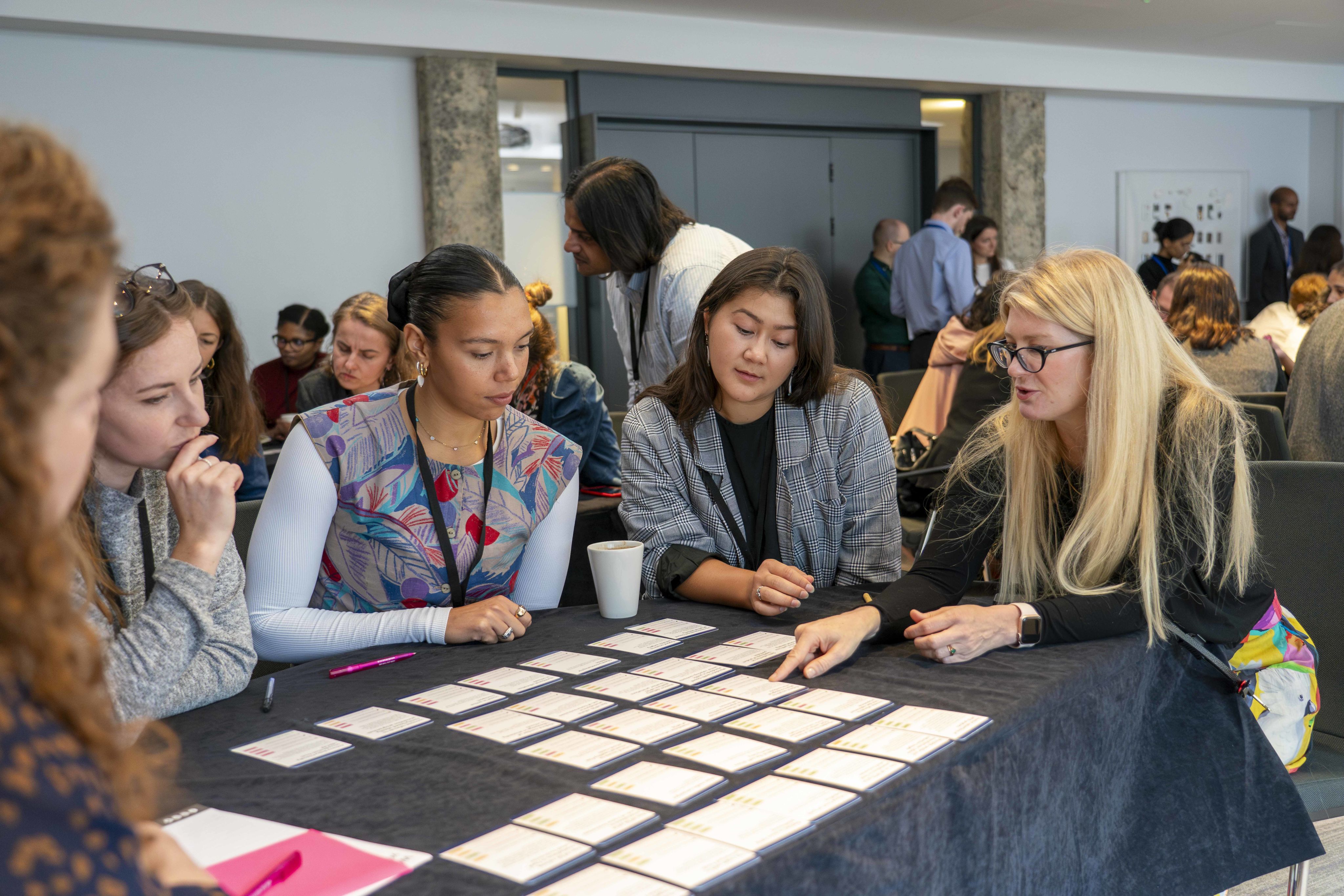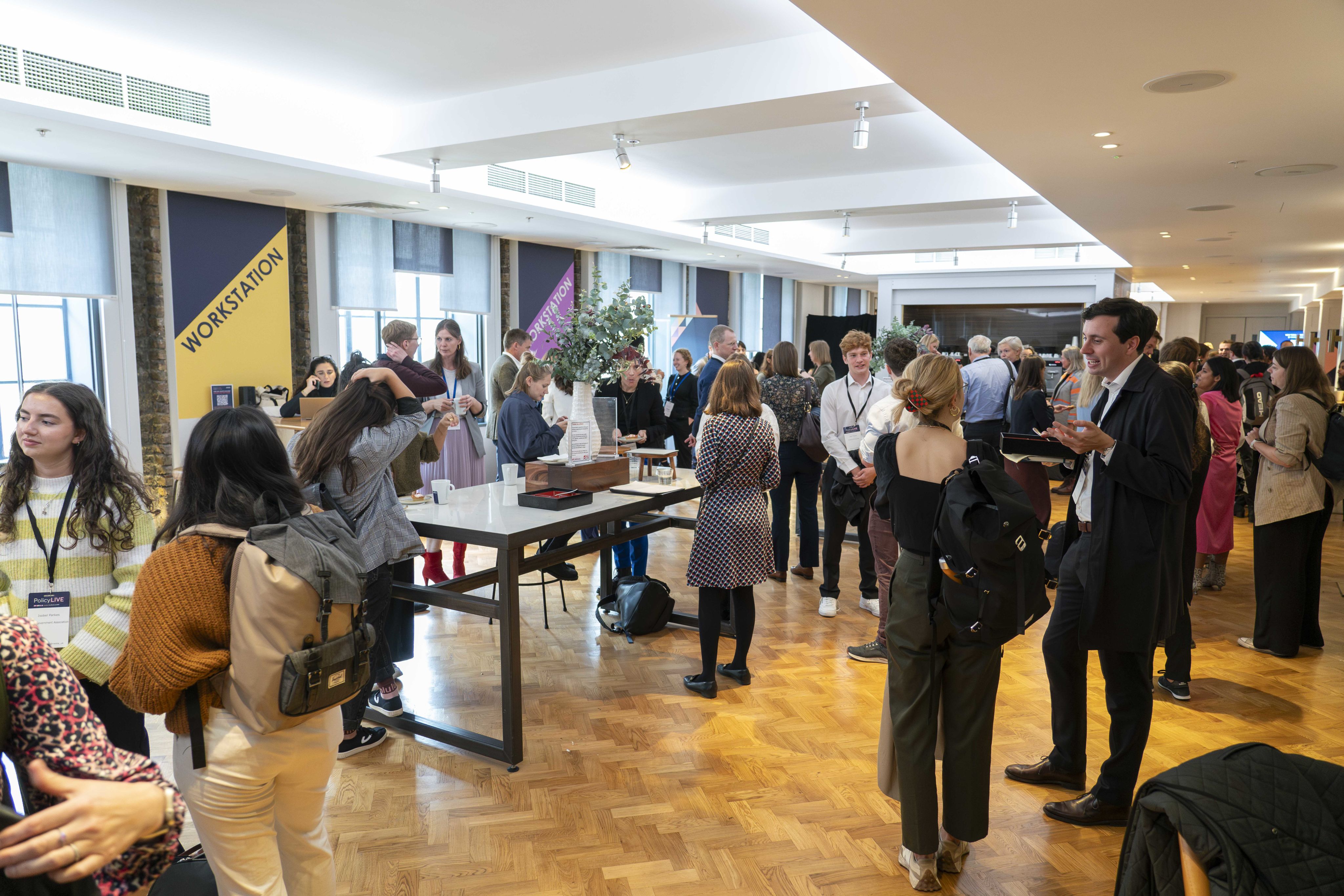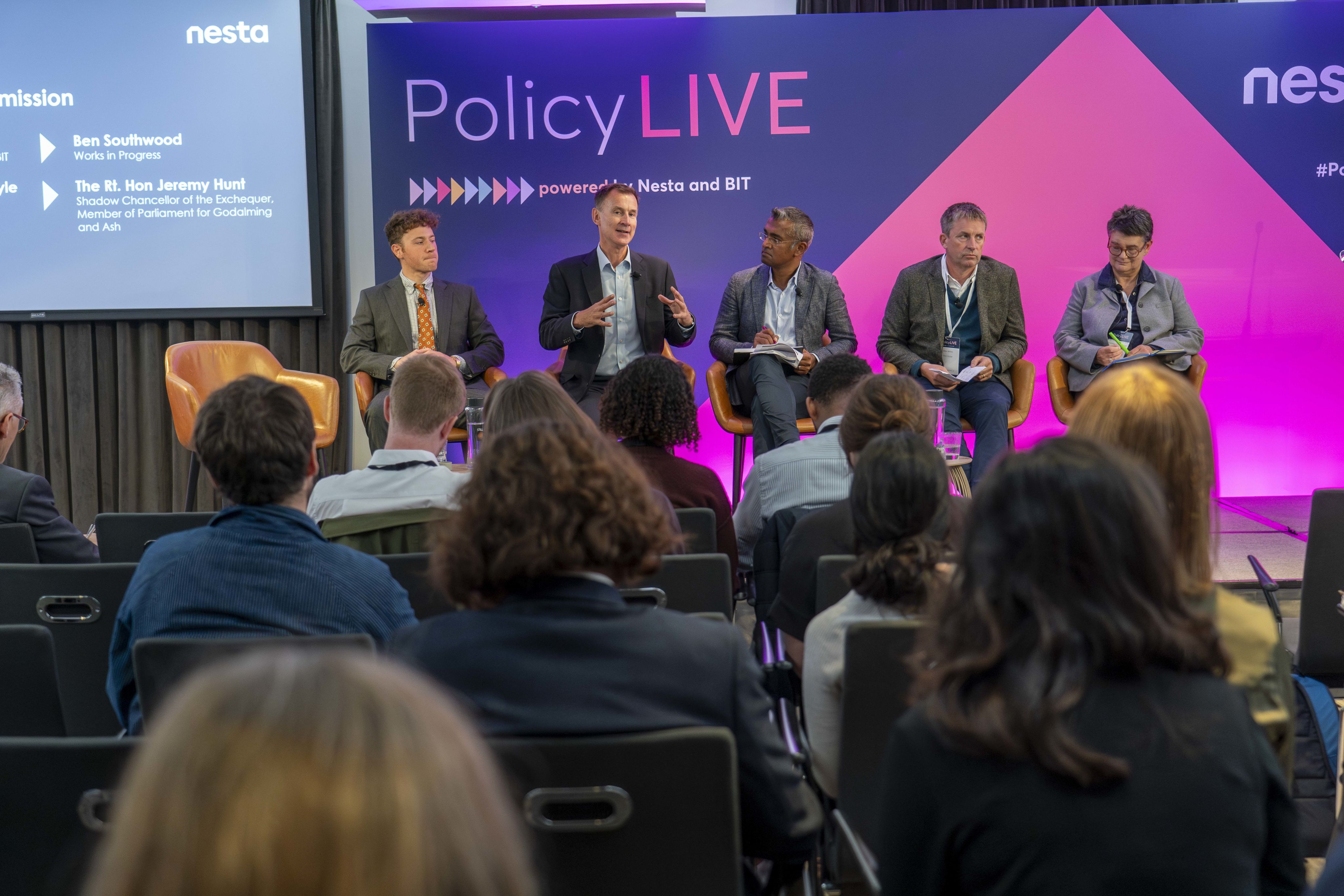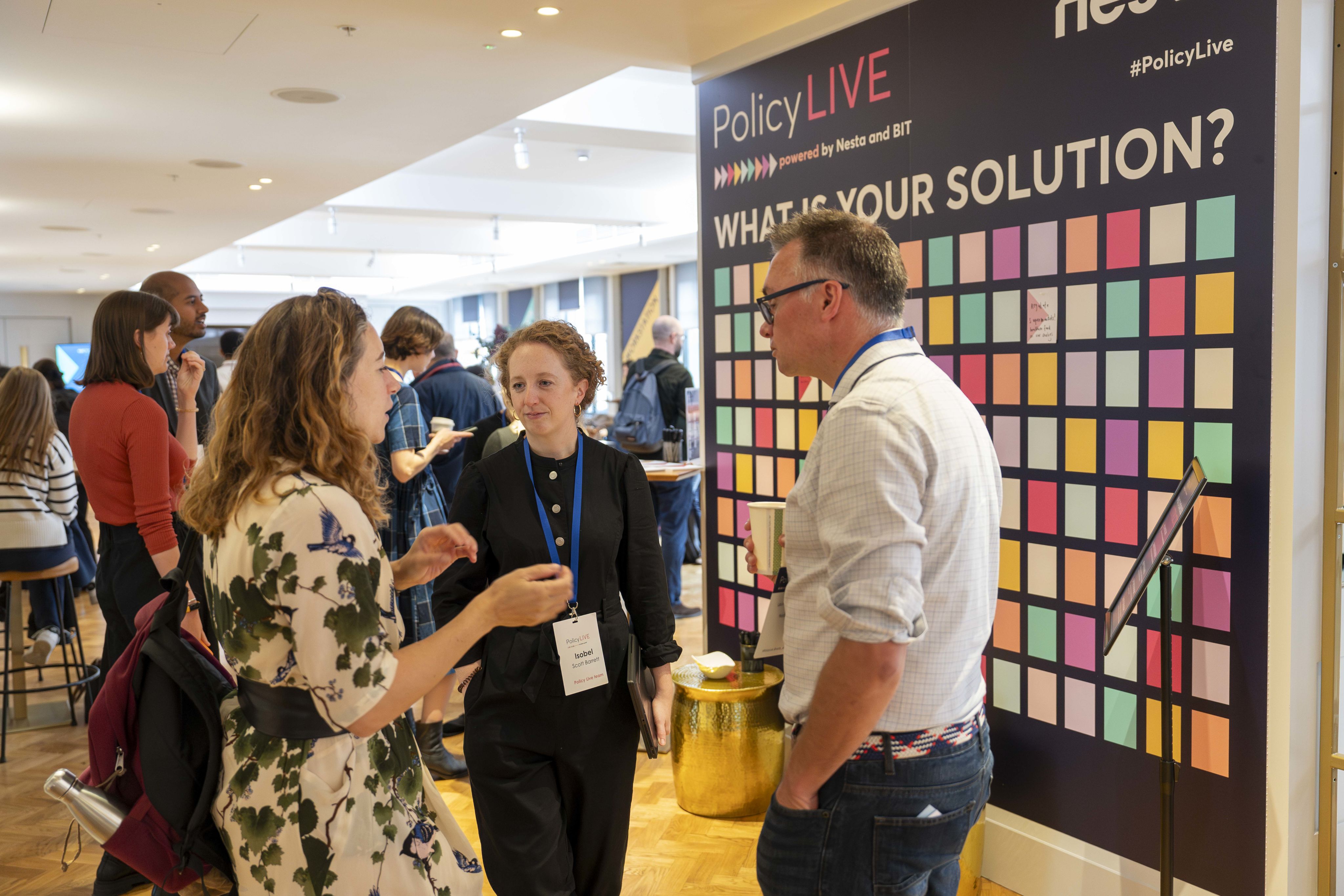Policy Live: what would it take to reach a brighter future?
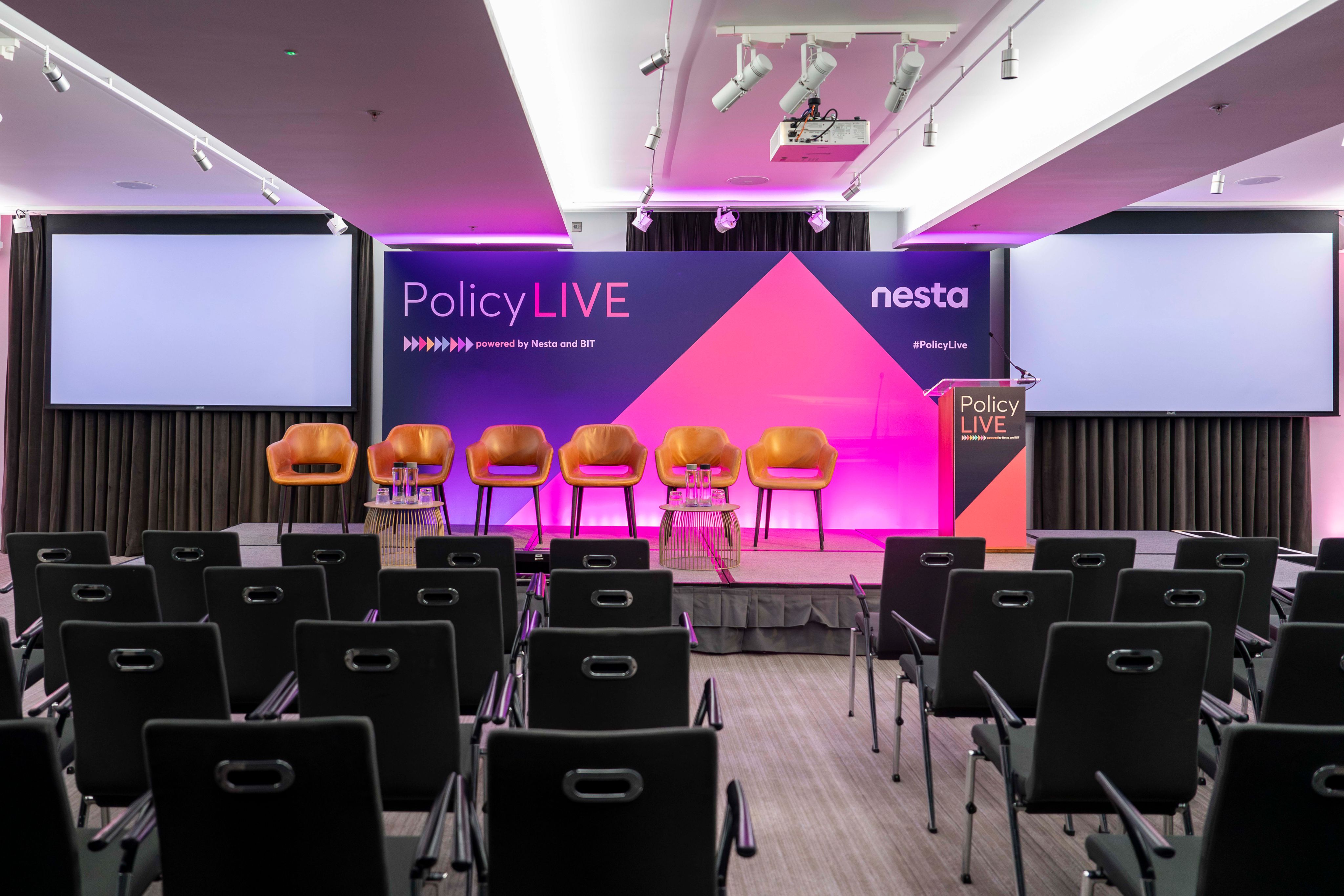
Over the past few years, the public debate about politics and policy has more often than not felt bleak. With public services struggling to meet demand, a fragile economy and a world that increasingly feels unstable, it’s easy to see why there’s a lack of optimism about the future.
But what would it take to change course?
This was the premise that prompted Nesta and BIT to launch UK 2040 Options in 2023. With a child born today taking its first steps into adulthood in 2040, the year-long project aimed to understand what life would be like for them - what fundamental trends, drivers and projections would shape their 2040 - and explore the policy ideas that would help the UK change tack.
And it was the same premise that underpinned the creation of Policy Live.
Policy Live: a new forum for ideas and practitioners
In September 2024, Nesta and BIT convened the first Policy Live, a new one-day public policy conference in Westminster.
Designed as a forum to spark conversation and debate amongst everyone working on policy, it brought together over 350 attendees - from central and local government, think tanks, academia, and civil society - to focus on a programme aimed at tackling some of the big policy questions that the country faces today.
As well as creating an opportunity to share the latest developments and newest thinking, the agenda also honed in on the tangible: the specific and implementable ideas that could shift the dial on some of the negative trends facing the UK.
Throughout the day attendees had the choice of joining over 28 sessions and hearing from over 90 speakers, that included both influential leaders and emerging voices from across local and central government, the civil service, NGOs and the private sector.
With a programme that spanned the big and the broad, such as how to right the NHS with little extra money available, through to the interactive and specific, such as demonstrations of new public deliberation tools, there was something on offer for everyone.
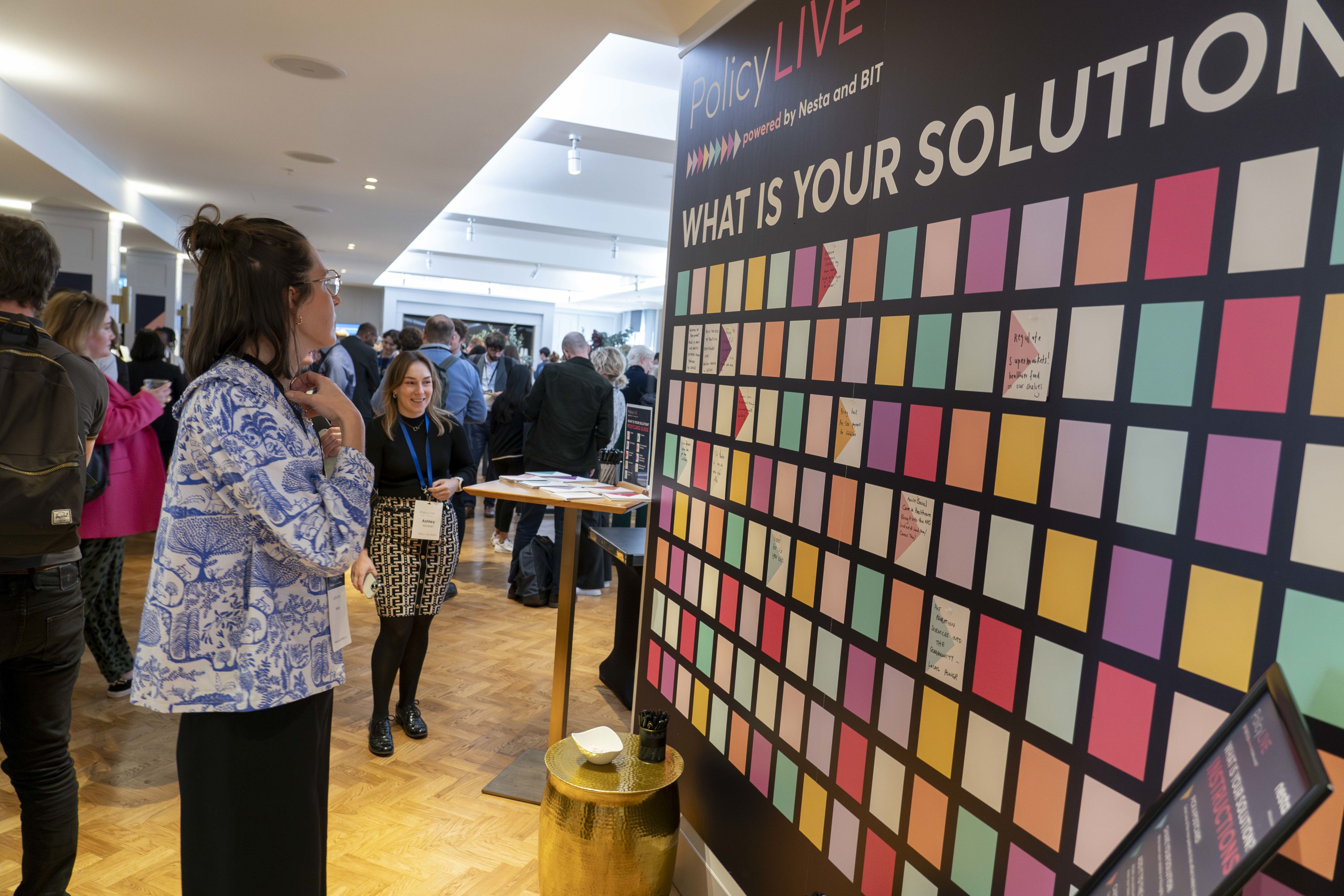
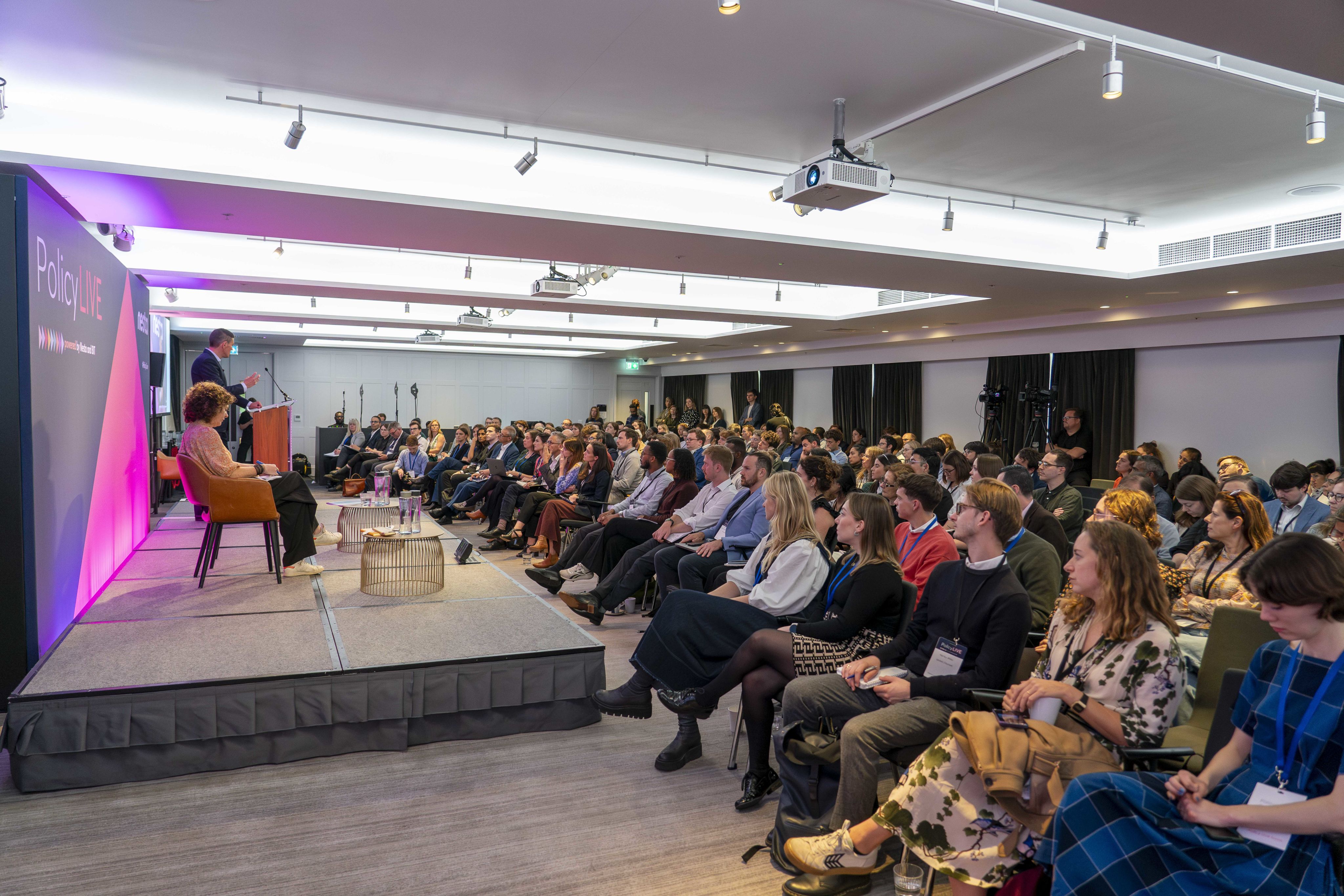
What were the key takeaways?
While each session naturally had its own topic and message, a few unifying themes emerged throughout the day.
Everyone is clear-eyed about the extent of the problems facing the UK.
Many conversations started by highlighting the multitude of issues facing the UK, and they didn’t shy away from what the combination of a stagnant economy, an ageing population and declining living standards meant for those living in the UK.
But there was no appetite for platitudes, or simply raising problems without offering a solution.
There was a noticeable push to focus on the tangible: panellists and speakers zeroed in on what big policy decisions we can expect from Labour over the next five years, chairs pressed their panels to offer solutions, not just reiterate or canvas known issues and there were lines out the door for sessions on evidence-led policy.
It is clear that there was both a desire for change and an openness to the new methods that we might need to get there.
Panellists had ideas and advice for the Government on how to tackle core challenges.
- Growth was recognised as the central, and most difficult, challenge for this government. The now Shadow Chancellor Jeremy Hunt urged attendees to “not lose hope” on becoming a high-growth economy - noting that others were also mired in the low-growth trap. He highlighted what he felt were the key areas of focus for the new Government: welfare reform, increasing public sector productivity and attracting and retaining international investment.
- Just get building. The need to build more houses, and radically reduce housing costs, came up as critical in sessions as diverse as discussions on reducing child poverty, through to conversations on increasing growth while decreasing inequality., In the session on how the government can achieve its housing goals, design practice Create Streets had a key message: density matters, and plan your transport first.
- There are no easy choices on tax and spend - the Chancellor needs to make some tough calls. In our panel chaired by Helen Miller of the IFS the experts debated what choices the Chancellor should make but they all agreed that she will need to make some difficult decisions on spending. Expectations are already being set for higher taxes and higher borrowing or lower spending in this coming Budget - or maybe a combination of all three.
- While all eyes are on the NHS, no quick fixes please. Policy Live fell on the same day as the Darzi review was released, crystallising for our health panellists the extent of the problems facing the NHS. As the Health Foundation’s Jennifer Dixon said, with the NHS the situation now not “invest or die”, but rather “reform or die”. The government needs to go about this in a sensible, measured way - focussing on the environments outside hospitals as much as inside. Policy Live highlighted that there are many smart policy proposals that could go some way towards helping the government achieving its health mission, such as Nesta’s Blueprint for Halving Obesity, introduced on the day, it gives policymakers a toolkit of evidence-based policies to tackle the obesity crisis head on.
- Fail to mobilise citizens in your big policy decisions at your peril. The transition to net zero, the changing world of work, reform of the NHS: all require the government to make trade-offs and citizens to understand them. Throughout the day panellists highlighted and emphasised the importance of involving the public. A demonstration of the Centre for Collective Intelligence Design’s new public deliberation tool - The Situation Room - helped crystallise how Government, and local authorities, can do just that.
- There’s a real opportunity in the shift to mission-driven government - if it is done right. Many speakers told us of the different ways that shifting to a mission-driven approach could institutionalise new approaches to lock in progress. David Miliband closed Policy Live with his reflections on what being mission-driven could achieve for the new government. He emphasised that the missions are not just missions for government, but missions for the country. For him, the key to the mission’s success will be if the Government can build coalitions around them.









Attendees also shared a wide range of policy solutions to the UK's biggest challenges.
Despite the magnitude of the challenges ahead for the UK, many still spoke about the reasons for optimism.
Ravi Gurumurthy, CEO of Nesta and BIT, opened Policy Live by detailing what gives him hope: he outlined the four big opportunities, which cut across sectors and missions, that give him reason to believe that we can make progress.
- Problems are so acute they are opening up political space
- There is huge potential from catch-up growth
- At the same time, technology is enabling us to push the frontier, as well as mobilise citizens
- We’re seeing a more pragmatic conversation about the role of the state in shaping industries and markets.
Speakers encouraged the attendees to seek out opportunities for optimism, and to capitalise on this moment where there is appetite for policy ideas.
Continue the conversation
Nesta and BIT will be hosting again Policy Live next year. Expect to see a similarly full programme, focussed on the issues of the day. If you or your organisation would like to be involved, please get in touch.
You can also sign up to the Nesta newsletter to make sure you hear about our programme for 2025.
Find out more about our policy work
You can download and read The Ideas, the UK 2040 Options papers that sparked Policy Live.
And explore our blueprint to halve obesity in the UK, a toolkit that evaluates the impact and cost of different policies to reduce obesity.
